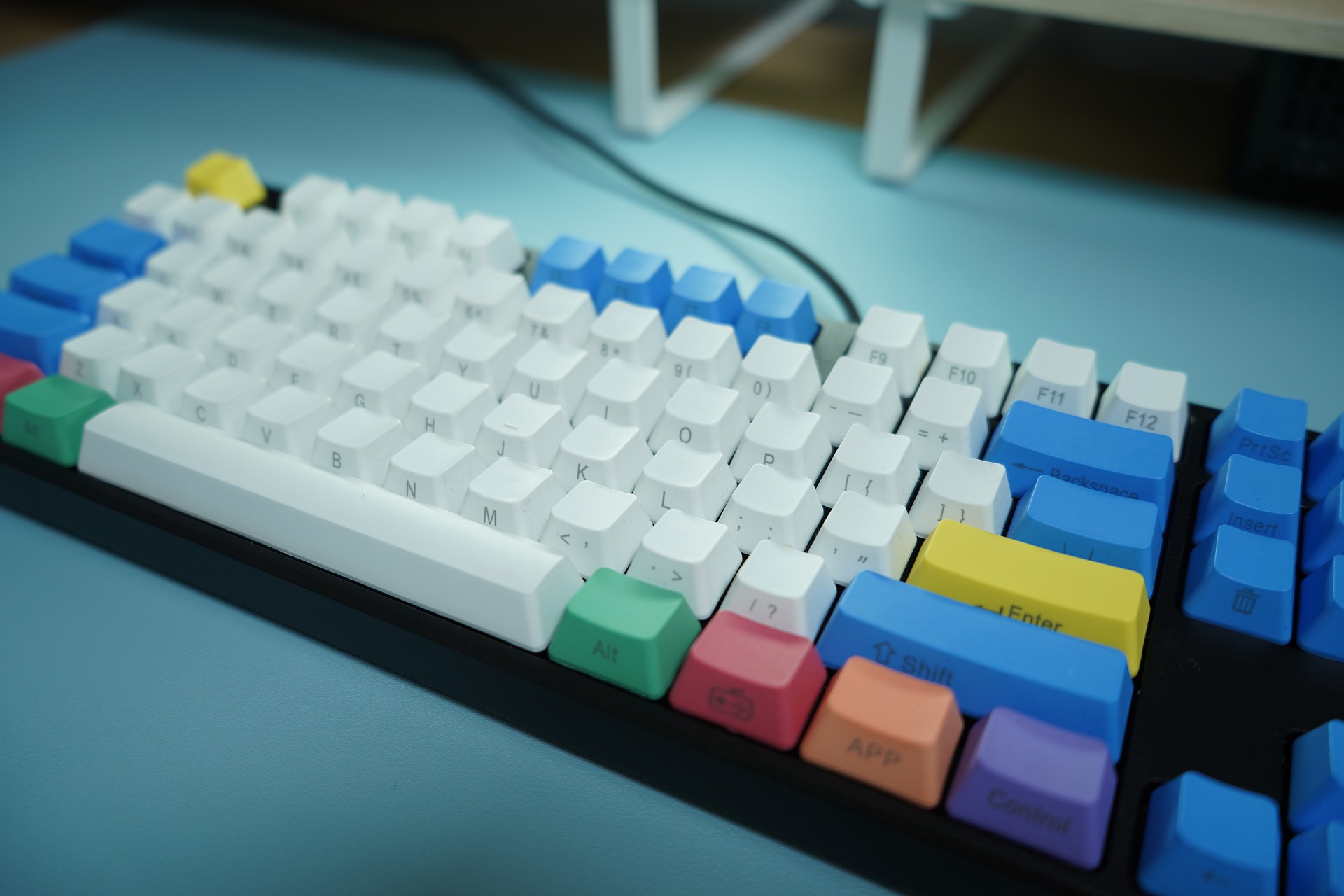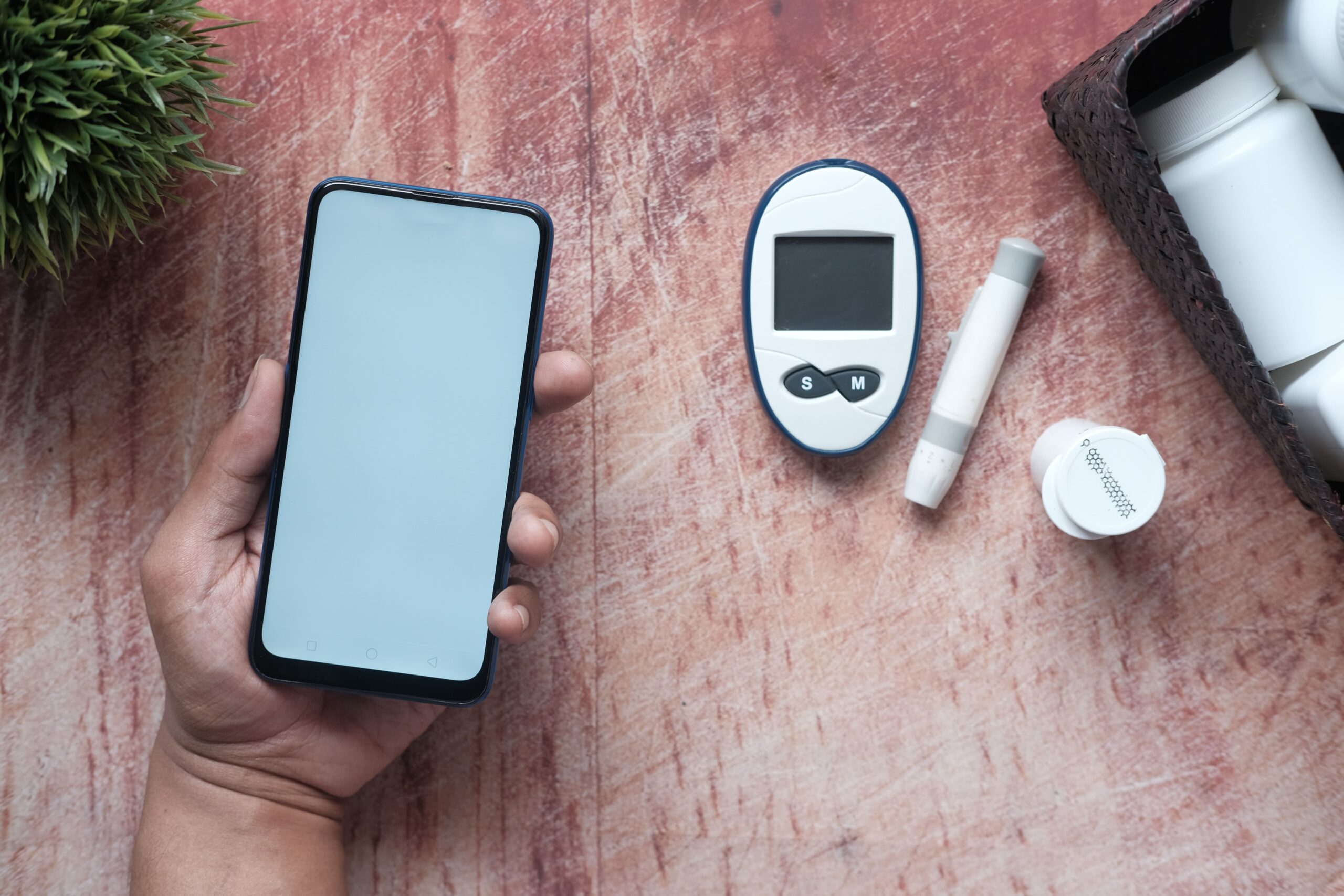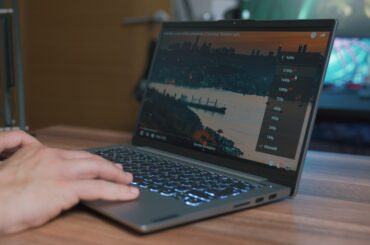A mechanical keyboard is a type of keyboard that uses physical switches beneath each keycap to register keystrokes. Unlike membrane keyboards commonly found on laptops, mechanical keyboards offer a tactile and responsive typing experience, which many users find more comfortable and efficient. In addition, mechanical keyboards are known for their durability and longevity and the ability to customize various aspects such as switch type, keycap design, and lighting.
While mechanical keyboards are commonly associated with desktop setups, they can also be used with laptops. There are several options for using mechanical keyboards on laptops, including external keyboards that can be connected via USB and laptops with built-in mechanical keyboards. In this article, we will explore the benefits of using a mechanical keyboard on a laptop, the options available, and how to choose the best one.
Mechanical keyboard on a laptop
Benefits of Using a Mechanical Keyboard on a Laptop :
Using a mechanical keyboard on a laptop offers several benefits over a standard membrane keyboard.
Tactile and Responsive Typing Experience: Mechanical keyboards provide a tactile bump or click when a key is pressed, giving users immediate feedback and a more satisfying typing experience. This tactile response can also help users type faster and more accurately, as they can better feel when each key is pressed.
Improved Typing Speed and Accuracy: Because of the mechanical switches, users don’t need to press a key all the way down for it to register. This means that keystrokes can be made with less effort, allowing users to type faster and more accurately.
Durability and Longevity: Mechanical keyboards are known for their durability and longevity. The mechanical switches used in these keyboards are designed to withstand millions of keystrokes, making them an excellent investment for those who type frequently.
Customization Options: Users can choose from switch types, keycap materials and designs, and lighting effects. This level of customization allows users to create a keyboard that is tailored to their specific needs and preferences.
Using a mechanical keyboard on a laptop can significantly enhance the typing experience and improve productivity. The tactile feedback, improved speed and accuracy, durability, and customization options all make mechanical keyboards an excellent choice for laptop users.
Options for Mechanical Keyboards on Laptops :
There are several options for using mechanical keyboards with laptops. Here are the most common options:
USB-connected External Mechanical Keyboards: External mechanical keyboards can be connected to laptops via USB, allowing users to enjoy the benefits of a mechanical keyboard without replacing it. These keyboards come in various sizes and styles, making them a flexible option for different use cases.
Built-in Mechanical Keyboards in Gaming Laptops: Many gaming laptops have built-in mechanical keyboards specifically designed to provide a high-performance typing experience. These keyboards often have customizable lighting effects, dedicated macro keys, and other features tailored to gamers’ needs.
Aftermarket Mechanical Keyboard Modifications: Some laptop users choose to modify their laptop’s keyboard to incorporate mechanical switches. This can be done by purchasing and installing a mechanical keyboard conversion kit, which replaces the membrane switches with mechanical switches. However, this option requires some technical expertise and may void the laptop’s warranty.
Each option has its own benefits and drawbacks. External keyboards offer the most flexibility but require additional desk space and may need to be more portable. Built-in mechanical keyboards offer a great typing experience but are typically only found on higher-end gaming laptops. Aftermarket modifications offer the ultimate customization but require some technical expertise and may be risky for those who need to become more familiar with the process.
Best Laptops with Mechanical Keyboards :
If you’re looking for a laptop with a built-in mechanical keyboard, there are several models to consider. Here are reviews of some of the top laptops with mechanical keyboards:
MSI GE76 Raider: The MSI GE76 Raider is a high-end gaming laptop with a built-in SteelSeries mechanical keyboard. The keyboard has per-key RGB lighting and is designed for high-performance gaming. The laptop also features an Intel Core i7 processor, Nvidia GeForce RTX 3080 graphics card, and a 240Hz display. However, it is heavy and bulky.
ASUS ROG Zephyrus G15: The ASUS ROG Zephyrus G15 is a mid-range gaming laptop with a built-in mechanical keyboard. The keyboard uses optical-mechanical switches, which provide fast response times and a satisfying typing experience. The laptop also features an AMD Ryzen 9 processor, Nvidia GeForce RTX 3080 graphics card, and a 165Hz display. However, it is pretty expensive.
Acer Predator Triton 500 SE: The Acer Predator Triton 500 SE is a high-end gaming laptop with a built-in mechanical keyboard. The keyboard has per-key RGB lighting and uses Cherry MX Brown switches, which provide a tactile and responsive typing experience. The laptop also features an Intel Core i9 processor, Nvidia GeForce RTX 3080 graphics card, and a 240Hz display. However, it is expensive and may be too bulky for some users.
When choosing a laptop with a mechanical keyboard, it’s essential to consider factors such as performance, features, and pricing. Some important features to look for include keyboard switch type, keyboard lighting options, display resolution and refresh rate, and overall build quality. It’s also important to consider the laptop’s weight and portability, as well as its battery life and connectivity options. Ultimately, the best laptop with a mechanical keyboard for you will depend on your specific needs and budget.
Choosing the Right Mechanical Keyboard for Your Laptop :
Choosing the right mechanical keyboard for your laptop can be a daunting task, but there are several factors to consider that can help you make the best decision.
Switch type: The type of switch used in a mechanical keyboard can significantly impact the typing experience. Some popular switch types include Cherry MX Blue (tactile and clicky), Cherry MX Brown (tactile and quiet), and Cherry MX Red (linear and quiet). Each switch type has its benefits and drawbacks, so it’s essential to try out different switch types before deciding.
Size: from full-size to compact. Your size will depend on your preferences and how you plan to use the keyboard. For example, a full-size keyboard may be more comfortable for office work, while a compact keyboard may be better for gaming or travel.
Layout: The layout of a mechanical keyboard can also affect the typing experience. Some popular layouts include ANSI (US standard), ISO (European standard), and HHKB (Happy Hacking Keyboard). Again, it’s essential to consider your personal preferences and how you plan to use the keyboard when choosing a layout.
Compatibility: Finally, it’s essential to consider the compatibility of the mechanical keyboard with your laptop. Some keyboards may require additional software or drivers to work correctly, while others may not be compatible with specific operating systems.
Based on these factors, here are some recommendations for different use cases:
Gaming: Look for a mechanical keyboard with Cherry MX Red or similar linear switches for gaming. A compact size and backlit keys may also be necessary for gaming in low-light conditions. Some popular options include the Ducky One 2 Mini, the Cooler Master SK630, and the Logitech G Pro X.
Programming: For programming, you may want to look for a full-size keyboard with Cherry MX Brown or similar tactile switches. A customizable layout and dedicated macro keys may also be helpful for programming tasks. Some popular options include the Das Keyboard 4 Professional, the Varmilo VA87M, and the Filco Majestouch 2.
Office work: You can look for a full-size keyboard with Cherry MX Blue or similar tactile and clicky switches. A wrist rest and multimedia keys may also be helpful for long typing sessions. Some popular options include the Leopold FC900R, the Vortexgear ViBE, and the CODE V3.
Overall, choosing the right mechanical keyboard for your laptop depends on your preferences and how you plan to use the keyboard. By considering factors like switch type, size, layout, and compatibility, you can find a mechanical keyboard that meets your needs and enhances your typing experience.
Maintenance and Care of Mechanical Keyboards on Laptops :
Mechanical keyboards can provide a great typing experience, but they also require some maintenance and care to keep them functioning correctly. Here are some tips for cleaning and upkeep, as well as everyday issues and troubleshooting solutions:
Cleaning: Over time, dust, dirt, and debris can accumulate in the switches and keycaps of a mechanical keyboard. To clean your keyboard, start by unplugging it from your laptop. Then, use a can of compressed air to blow out any dust or debris from the switches and keycaps. You can also use a soft-bristled brush to scrub the keycaps and remove any dirt or grime gently. If your keycaps are removable, you can remove them and clean them individually with a mild soap solution.
Lubrication: Lubricating your switches can help to reduce friction and extend the lifespan of your keyboard. However, it’s essential to use the correct type of lubricant and apply it sparingly to avoid damaging your switches. Krytox GPL 205 Grade 0 is a popular lubricant for mechanical keyboard switches.
Avoid spills: Spills can cause severe damage to a mechanical keyboard, so it’s essential to avoid eating or drinking over your keyboard. If you do spill something on your keyboard, immediately unplug it and clean it as thoroughly as possible. Consider using a keyboard cover or carrying case to protect your keyboard while on the go.
Common issues: Some issues with mechanical keyboards include key chattering (when a key registers multiple keystrokes), critical switch failure, and LED malfunctions. If you experience any of these issues, you may need to replace the affected switches or keycaps. You can find replacement parts online or from the keyboard manufacturer.
Troubleshooting:
- If your mechanical keyboard isn’t working correctly, start by checking the connection to your laptop.
- Ensure the keyboard is securely plugged in, and the USB port works correctly.
- Try restarting your laptop or resetting your keyboard’s firmware. If these steps don’t solve the problem, you may need to seek professional repair or replacement.
By following these tips for cleaning and upkeep, as well as troubleshooting common issues, you can help to extend the lifespan of your mechanical keyboard and ensure that it continues to provide a great typing experience for years to come.
In conclusion, using a mechanical keyboard on a laptop can provide several benefits, including a tactile and responsive typing experience, improved speed and accuracy, durability, and customization options. There are various options for using mechanical keyboards on laptops, including USB-connected external keyboards, built-in keyboards in gaming laptops, and aftermarket modifications. When choosing a mechanical keyboard for your laptop, it’s essential to consider factors such as switch type, size, layout, and compatibility and to select a keyboard that is suited to your specific use case. Following the tips for maintenance and care outlined in this article, you can help extend your mechanical keyboard’s lifespan and keep it functioning correctly. Overall, if you value a high-quality typing experience, a mechanical keyboard on a laptop may be an excellent investment for you.







